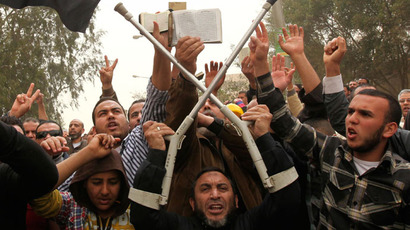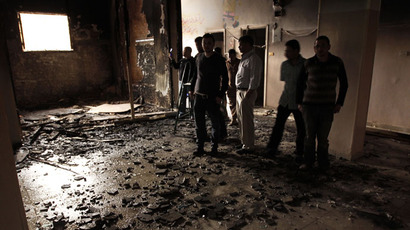Post-revolution Egyptian Christians sidelined, subjected to brutality
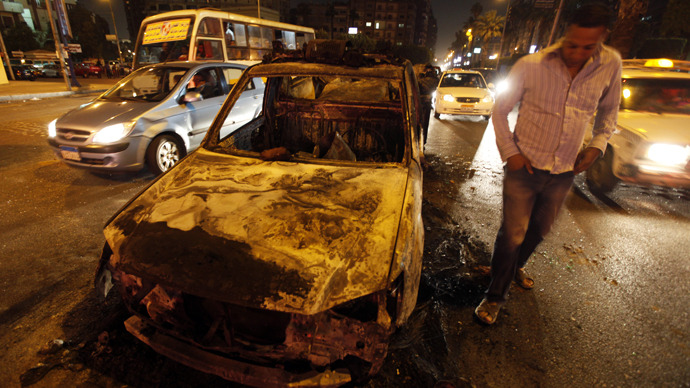
Egypt’s Christian minority has been marginalized by the ruling Muslim Brotherhood, says Coptic Pope Tawadros II. His statement comes amid increased religious tensions and allegations of brutal repressions by the Islamist party.
“There is a sense of marginalization and rejection, which we can call social isolation,” of the 15 percent Christian population in Egypt, the pope told Reuters.
The pontiff’s statement coincided with increased Christian-Muslim tension on Friday in a small Egyptian town in Beni Suef province, where police used tear gas to disperse stone-throwing Muslim crowd after they had encircled a Coptic church to protest inter-faith relationships.
The angry mob accuses the church authorities of helping 21-year-old female Rana el-Shazli, who has allegedly converted to Christianity, elope to Turkey with a Coptic Christian man.
The tension over this modern day Romeo and Juliet romance has
lasted for almost two months with Christian places of worship and
local Christian shops being attacked.
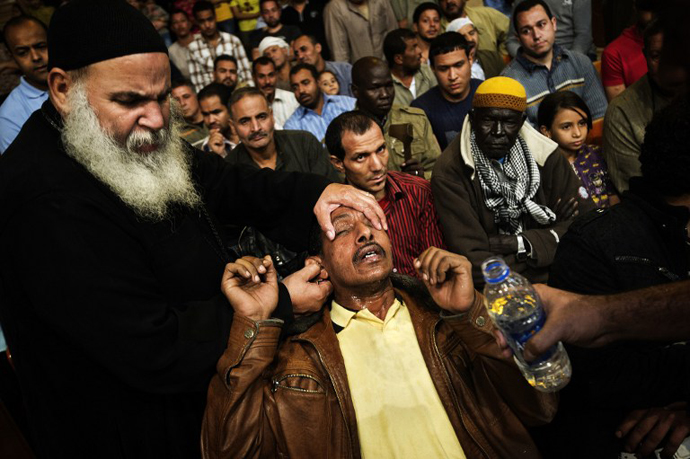
The Christian man's family has also been detained, after being accused of collaborating in hiding the woman. El-Shazli’s family issued an ultimatum for the church to return her early this month, but when it didn't, violence started again.
Also on Friday, a Christian woman vanished in the city of Luxor. A complaint was filed with the police by the victim’s family accusing a Muslim man of abducting their daughter.
Allegations of torture
Meanwhile, an Egyptian Christian activist revealed that he was tortured in a mosque in suburban Cairo back in March.
Amir Ayad claims that he was en route to join a crowd of protesters near the headquarters of the ruling Muslim Brotherhood’s Freedom and Justice Party in suburban Cairo on March 22 when he was kidnapped.
“I mistakenly thought they were police,” Ayad told International Christian Concern (ICC).
“When they saw my ID card they found out that I am a Christian. At that moment, they hit me on the head from behind and I lost consciousness. I woke up to find myself lying down on the floor of Belal Ibn Rabah mosque in Al-Moqattam.” Ayad claims that the mosque was used to torture non-conformists with the Muslim Brotherhood politics.
“Inside the mosque I was tortured, naked, my legs were tied, and my hands were tied behind my waist,” he explained.
“They came with thick wooden sticks and metal rods and started to strongly hit my legs and arms in order to break my bones.” The activist was not the only one tortured at the facility.
“At first, I was there with nine others who were demonstrating against the Brotherhood,” Ayad said.
“They released the other captives — after breaking their legs and arms — and brought more demonstrators.” Mosque representatives claimed that they were unaware of such brutal practices inside the Mosque.
“[We] deeply regret what has happened and apologize to the people of Moqattam,” MidEast Christian News reported.“[We] had lost control over the mosque at the time.”
Egypt’s torture trend
It is not the first time that the Muslim Brotherhood has been accused of torturing demonstrators.
Just last week two Muslim Brotherhood members in Egypt have been ordered to stand trial on charges of torturing students during a protest against the president.
The men are accused of detaining and beating the students in November at the Brotherhood office in the Nile Delta city during clashes between opponents of Morsi and his Islamist supporters.
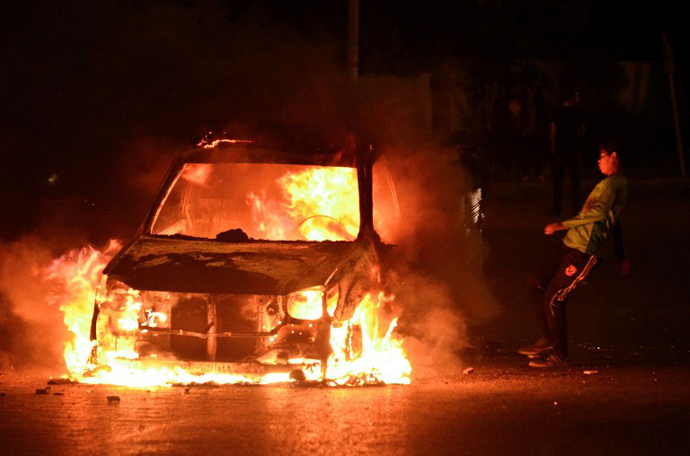
Earlier in April, it was reported that Egypt's senior army doctors were ordered to operate without anesthetic on wounded protesters during uprisings against military rule while other top-ranking military officials were involved in torture, killing and abductions.
“The findings that people were tortured in a military hospital and that senior military doctors ordered subordinates to operate without anesthetic are more than just shocking,” Karim Ennarah, a researcher on policing and criminal justice at the Egyptian Initiative for Personal Rights told the Guardian.













